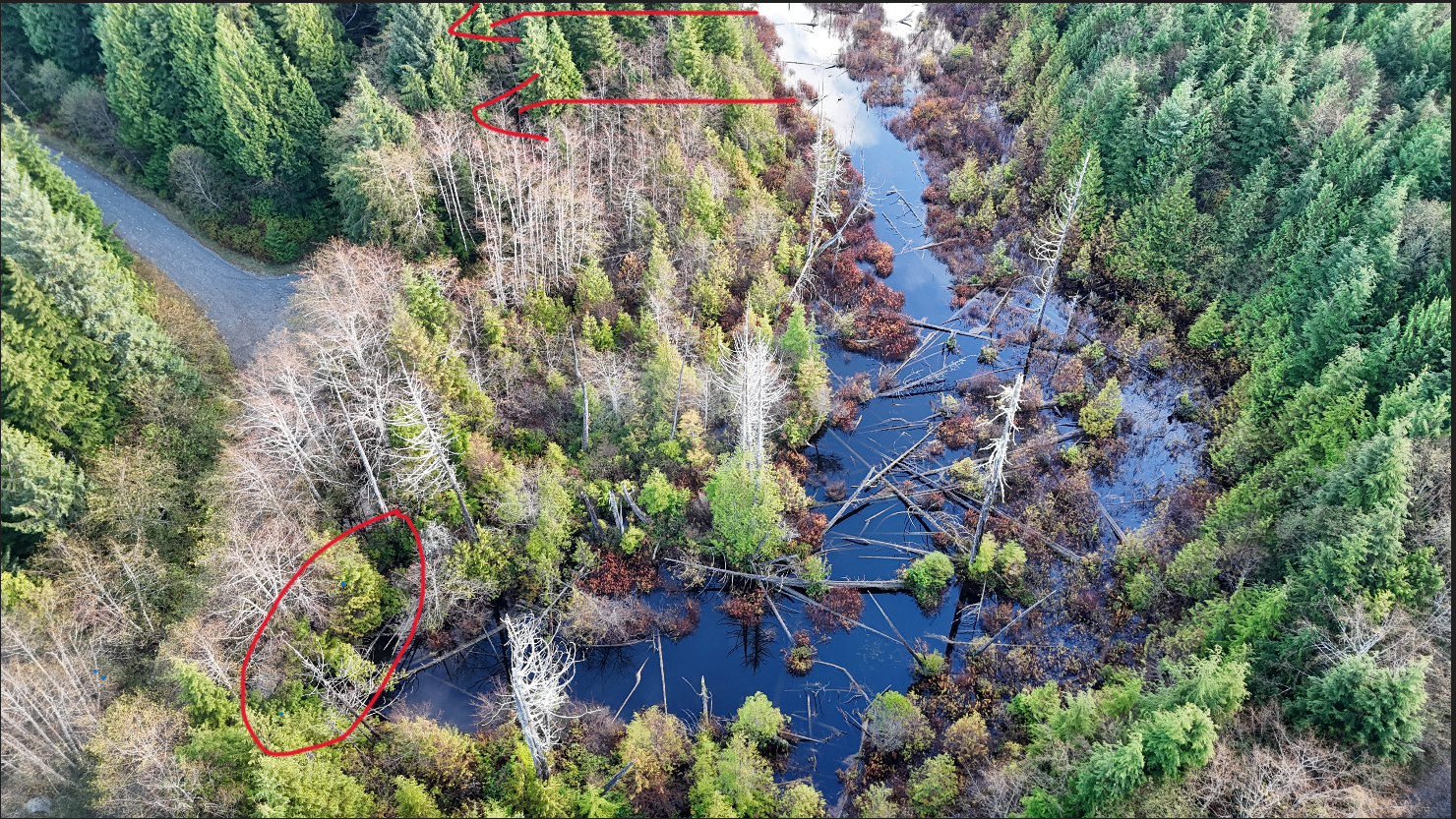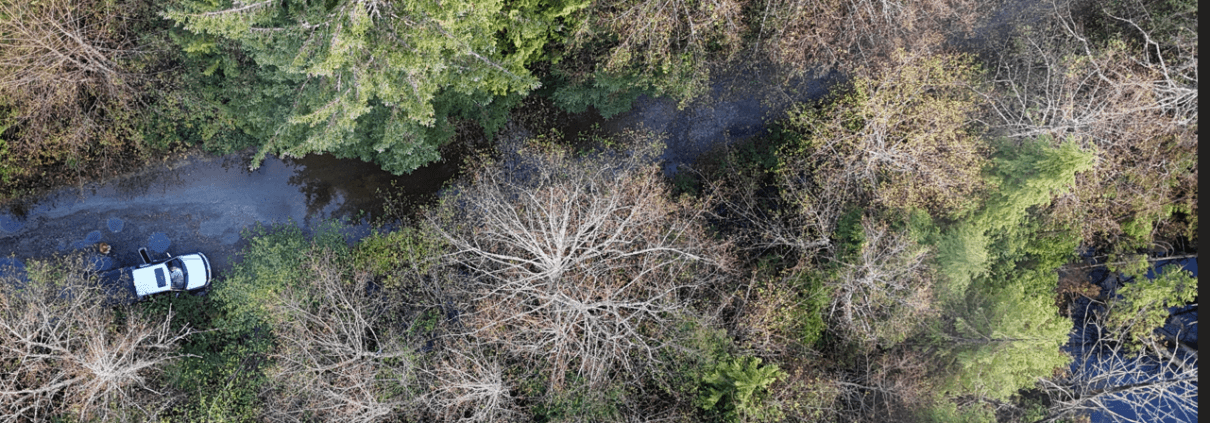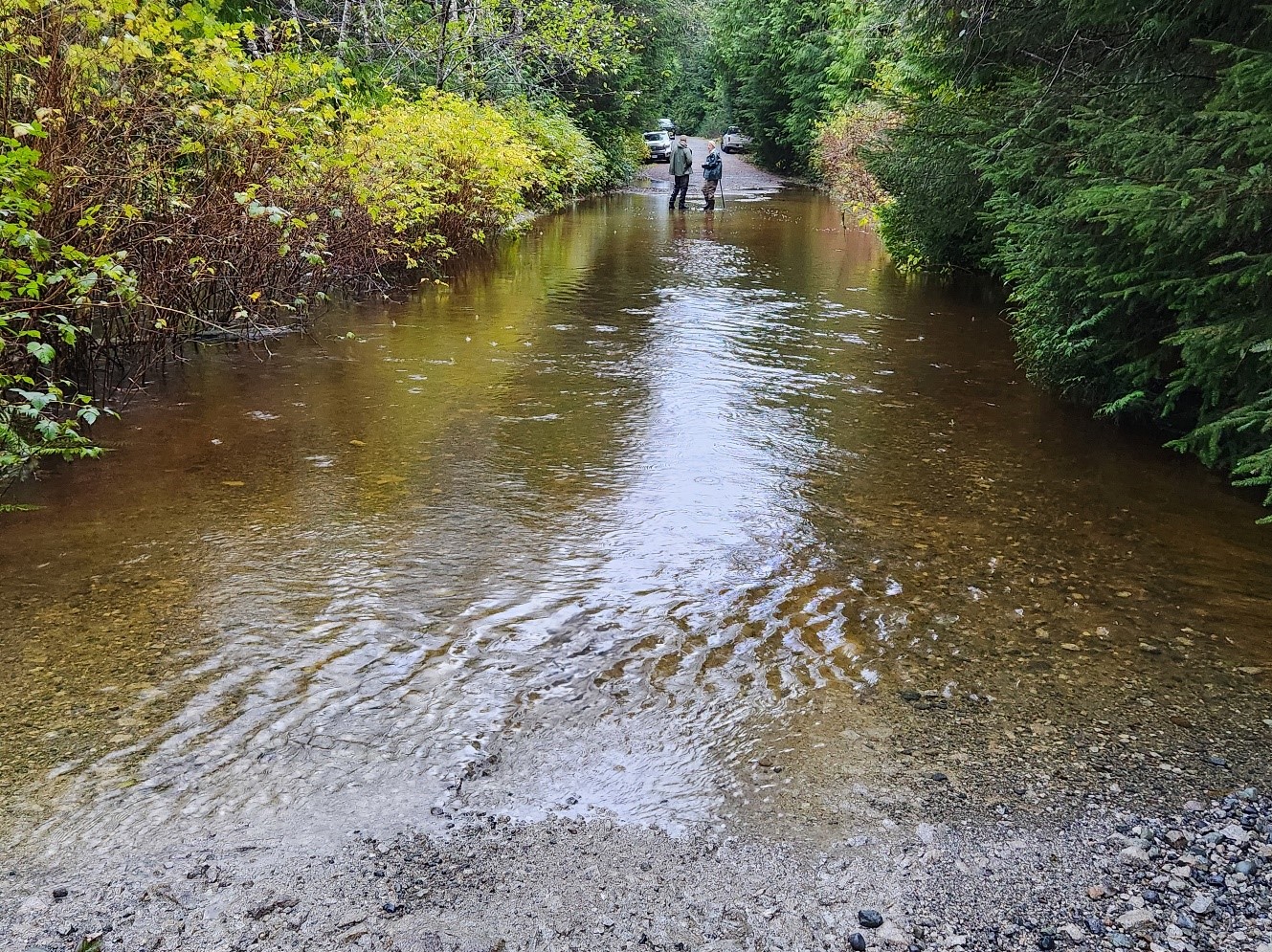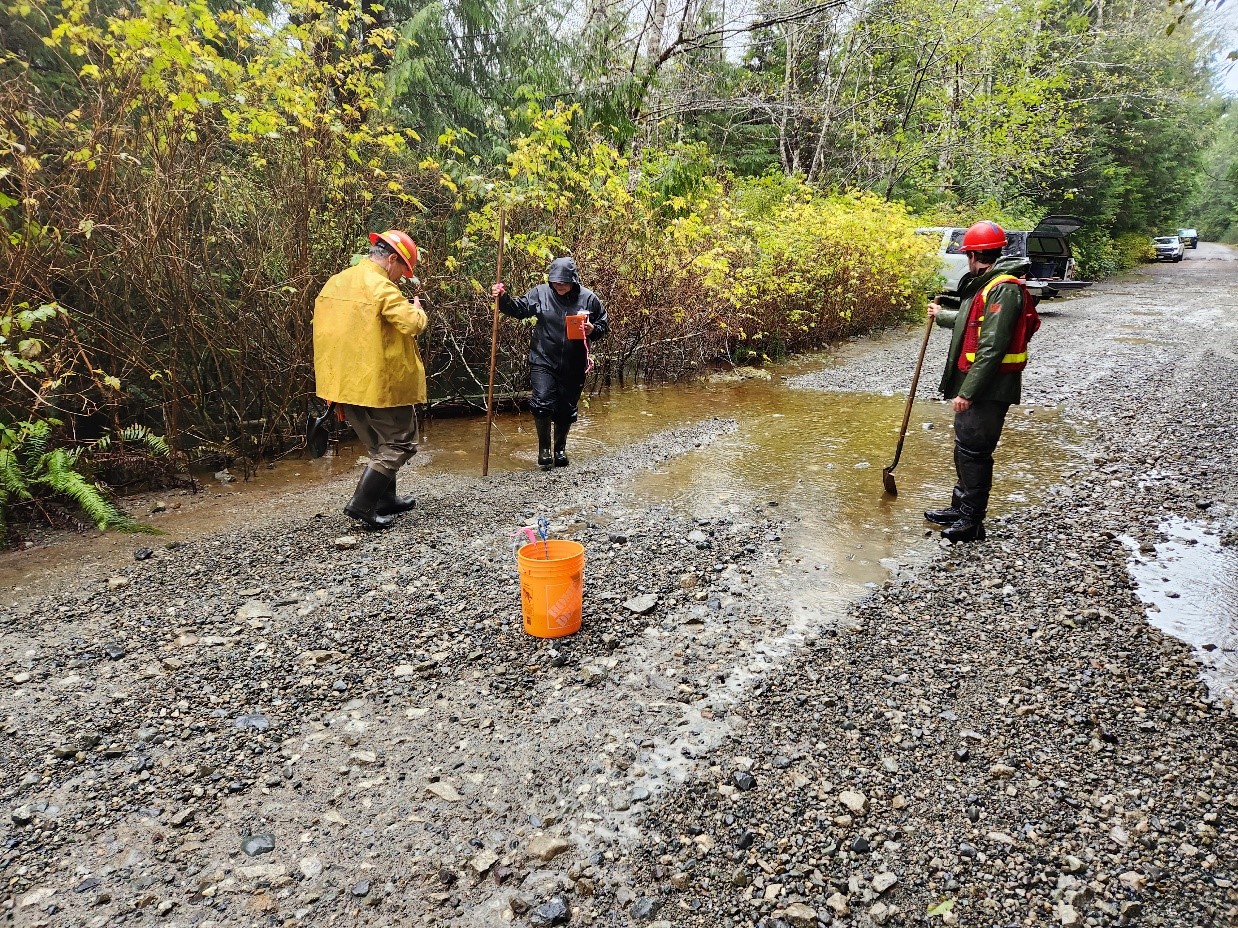Reconnecting salmon habitat damaged by B.C.’s atmospheric river
The Pacific Salmon Foundation (PSF) has approved $7,000 in funding from the Climate Emergency Fund to support time-sensitive efforts in Ucluelet and Squamish to prevent salmon strandings and mortalities in light of recent heavy rains.
An atmospheric river in mid-October on the B.C. coast and subsequent heavy precipitation led to elevated water flows in salmon-bearing watersheds, raising concerns that fish could become stranded in isolated pools when the water levels recede.
Salmon crossing
Near Ucluelet, heavy rainfall led to debris accumulation that blocked a culvert on Salmon Creek, causing flooding on the adjacent forest service road and blocking salmon passage to their spawning grounds. This was particularly challenging for migrating chum salmon.

An aerial view of the flooded site at Salmon Creek. The circled red area indicates the blocked culvert location and the arrows point to a flooded road. Photo: Redd Fish Restoration Society.
At least 100 salmon were counted crossing the flooded forest service road, veering off course from their creek.
With funding from PSF, Yuułuʔiłʔatḥ Government (Ucluelet First Nation) and Fisheries and Oceans Canada (DFO), with support from DR Clough Consulting, Redd Fish Restoration Society, and Gibson Brothers Contracting, stepped in to prevent salmon stranding incidents and restore access to key habitat.
On Oct. 31, the partners used an excavator to clear the blockage, successfully de-flooding the road and restoring water flow and fish passage through the culvert. As a result, no salmon were reported stranded.
Taking action in Squamish
The atmospheric river also created concerns for salmon at the Mamquam River in Squamish.
This corner of the watershed has long been a focus of restoration efforts led by Squamish River Watershed Society, in partnership with Squamish Nation and DFO’s Habitat Restoration team. The Mamquam River Reunion Project in the early 2000s reconnected the river to 50,000 square metres of restored channels, ponds, and wetlands isolated by the dyke — also supported by PSF. To provide flow to the channel network, a water intake was constructed on the Mamquam River. The Reunion channels now support chum, pink and coho salmon.
Over time, the river has gradually shifted away from the intake due to repeated high flow events that move large quantities of bedload throughout the lower river. While a long-term solution is being developed, the atmospheric river this year completely disconnected the main river from the intake while chum and coho were present in the system. Presently, the main river and the water intake are separated by a large gravel deposit.
The Mamquam Reunion Project is now suffering from low water flows, resulting in mortality risk for the fragile salmon eggs, redds, and the young fry in the system.
DFO has been monitoring this challenging area and has developed a plan to conduct temporary emergency works to maintain flows using an excavator, thanks to approved funding from PSF’s Climate Emergency Fund.
Due to ongoing rains and salmon activity, the area is currently not accessible for equipment to safely begin the remediation work, but the area is being closely watched and remains an ongoing priority.
PSF’s Climate Emergency Fund enables rapid response to climate emergencies impacting salmon throughout the province, such as floods, droughts, and wildfires. By mid-November of 2024, PSF approved $348,000 from the Climate Emergency Fund towards 17 projects to advance real-time action for salmon facing extreme climate events. These projects were identified by a broader ‘Supporting Emergency Actions for Salmon’ working group with the First Nations Fisheries Council of B.C., DFO, the Province of B.C., and PSF.





